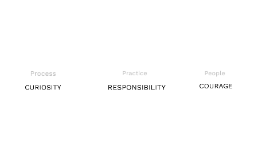Green and White
Transcript: Future Trends in Green Business Innovations in Sustainability Emerging technologies such as biodegradable materials, carbon capture, and renewable energy innovations are reshaping industries. Notable examples include plant-based plastics and zero-emission vehicles, which are transforming product lifecycles and reducing environmental impact. Introduction to Sustainability Consumer Demand for Eco-Friendly Practices Consumer preferences are increasingly leaning towards brands that prioritize sustainability. Studies show that 66% of global consumers are willing to pay more for sustainable brands, indicating a significant shift in market dynamics. What is Sustainability? The Role of Technology in Sustainability Technology plays a pivotal role in advancing sustainable practices, from AI-driven energy management systems to blockchain for supply chain transparency. These innovations enable businesses to enhance efficiency while minimizing their ecological footprint. Sustainability encompasses environmental, social, and economic considerations, aiming for a balance that ensures long-term ecological health and resource availability. It promotes responsible consumption and production patterns that safeguard the planet. Importance in Business Integrating sustainability into business models is crucial for reducing costs, improving efficiency, and fostering innovation. Companies embracing sustainable practices are often viewed favorably by consumers, enhancing brand loyalty and market competitiveness. Overview of Green Practices Green Business Strategies Green practices include recycling, reducing waste, and adopting renewable energy sources. Companies may implement strategies such as sustainable sourcing, eco-design, and carbon footprint reduction to align with sustainability goals. Green and White Eco-Friendly Products Eco-friendly products, made from sustainable materials, reduce waste and encourage recycling. Companies implementing green product lines have seen a significant rise in consumer interest, reflecting a 71% increase in eco-conscious purchases over the past five years. Sustainable Supply Chain A sustainable supply chain minimizes environmental impact, ensuring ethical sourcing and waste reduction. Organizations adopting these practices report up to a 50% decrease in supply chain emissions and stronger partnerships with eco-conscious suppliers. Energy Efficiency Measures Implementing energy efficiency measures can lead to substantial cost savings and reduced carbon footprint. Businesses that upgraded to energy-efficient systems have achieved up to a 30% reduction in energy costs, significantly enhancing their bottom line. Sustainable Business Practices for a Greener Future Benefits of Sustainability Cost Reduction Brand Loyalty Case Studies Regulatory Compliance Implementing sustainable practices often results in lower operational costs. Companies that reduce waste, optimize energy use, and invest in renewable resources can experience savings by decreasing utility bills and material costs. Sustainability initiatives positively impact consumer perception, leading to greater brand loyalty. Customers are more likely to support companies that commit to eco-friendly practices, thereby enhancing long-term relationships and driving sales. Adopting sustainable methods helps businesses comply with increasing environmental regulations. Companies that proactively implement green practices will mitigate risks associated with fines and penalties, ensuring smoother operations. Successful Green Companies Companies like Patagonia and Tesla exemplify successful green practices through the integration of sustainability into their core operations. Patagonia’s commitment to eco-friendly materials and Tesla’s innovation in electric vehicles showcase the competitive edge gained from environmental responsibility. Lessons Learned from Failures The downfall of companies like Enron and Blockbuster highlights the risks of neglecting sustainability and adaptability. Their failure to evolve in response to changing consumer values and environmental awareness led to significant operational losses and reputational damage. Impact on Local Communities Sustainable initiatives from businesses can significantly benefit local communities by creating jobs, supporting local economies, and improving public health. Companies engaging with their surroundings can foster stronger community ties and enhance corporate reputation.

















